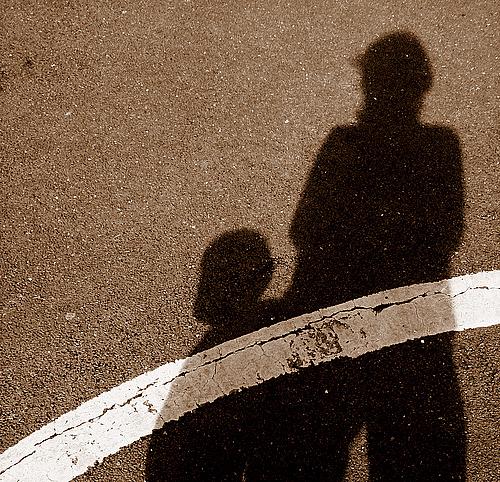How the truth, cancer and kids brought me to my knees

I can put up with the medical aspects of cancer treatment: the pinch from needles to draw blood or infuse drugs into me, the noisy MRI and other scans for which I must stay perfectly still for long periods. I can deal with the outsized bills and confusing insurance statements for the many tests and treatments. And I can put up with the pitying looks people give me when I tell them I have cancer. What got me was having to tell my children — Alex, who’s 14, and Stella, just 11 — that I have a particularly dangerous form of cancer. It was by far the hardest thing I’ve ever had to do.
I can’t imagine having to worry about a parent at their age. When I was a teen, my prevailing thought about my mom and dad was that they were annoying.
Some people advised me not to tell my children anything about my diagnosis. I realize that there are different approaches, and what’s right for one person may not be right for another. But I knew from the start I needed to tell them, and my husband agreed. We waited until my diagnosis was confirmed and knew my course of treatment.
We sat around the kitchen table after dinner on that chilly March night. There had been some starts and stops. I hesitated again and finally uttered the words, “I have cancer.” The second I said “cancer,” Stella became hysterical, inconsolable. It was crushing for her, and for us.
I told them everything, except that the cancer had spread to my brain. At the time, I thought it would be too frightening and figured I’d tell them about that later.
After two months, I let them know about the lesions found in my brain, when I could also say that those tumors were successfully treated using radiation. I tried to explain what radiation does.
My daughter focused on her own relief. “I’m so glad you’re getting better!”
My son’s reaction was tougher and made me question how I had approached telling them the whole truth.
“Why wasn’t I informed of this earlier?” Alex asked, his eyes steely and cold. I explained that I was afraid it was too much information to absorb when I first told them, and that I decided to wait until the cancer in my brain was successfully eradicated.
This explanation did not satisfy him. “How do I know I can trust anything you tell me?”
It was a question for which I had no answer. Yet if I had to do it again, I’m not sure I’d do it differently.
Social workers and child psychologists encourage honesty, reasoning that children at any age will sense something is wrong. If children are not told the truth, they may imagine something much worse. They say it’s best to share information early as a way of building trust. They advise a calm and reassuring tone, and I think I succeeded on that score. They say it’s fine to cry, but I didn’t. They say to make sure the children understand that cancer is not contagious, and I made that clear.
Experts also advise making sure children know what to expect, so I described my treatment. I told them about some of the possible side effects.
My daughter asked flatly whether I was going to die. I said I would try as hard as I could to stick around as long as possible. She seemed reassured.
Lately, I worry whether I’ve been too reassuring. My treatment is going well, but my cancer is unlikely to be cured. At best, it will be managed. What if my health takes a turn for the worse? Will all this positivity render them unable to cope?
I asked Katy Hewson, a social worker at MD Anderson, where I am being treated.
“You are relaying to your children the information your doctors gave you. You could tell them that there’s always the possibility that you’ll die, but that you’re focusing on getting better,” Hewson said.
Children ask a lot of questions, I said.
“What they’re really asking is, ‘what’s going to happen to me?’” she said. “You have to reassure them, but there’s always that element of uncertainty.”
This article has been reposted with permission from the Thompson Reuters blog "Cancer In Context."
Image by MegaBu7 via Flickr

